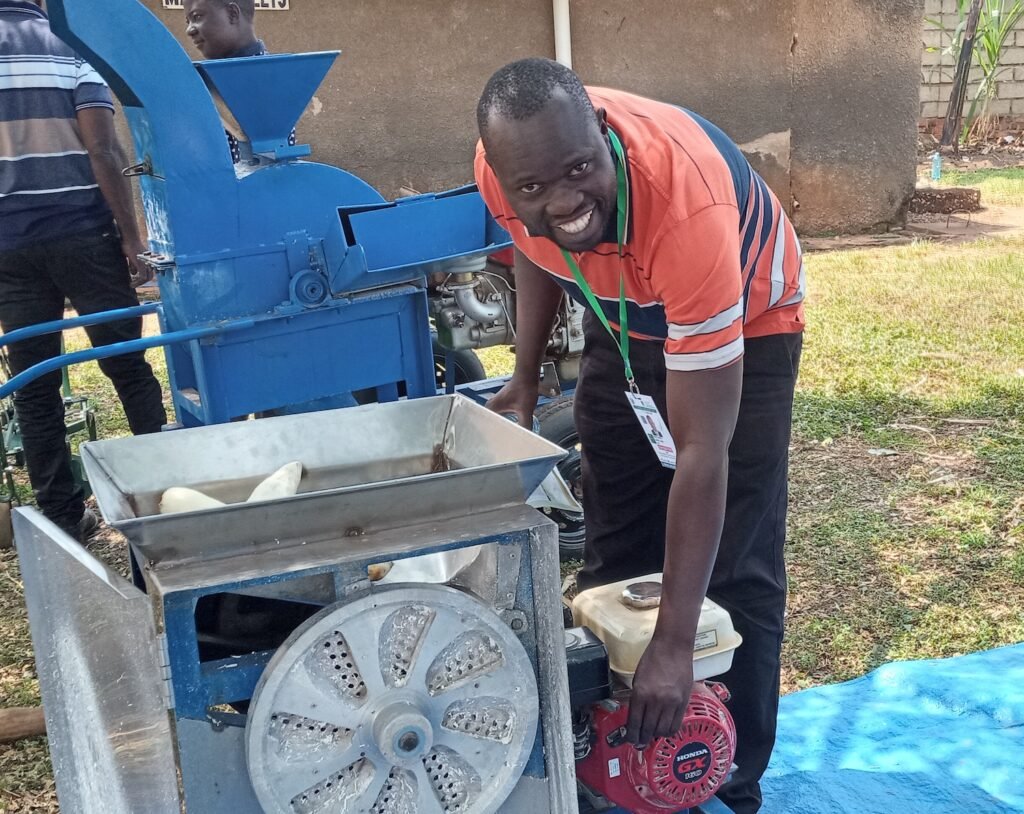By Lominda Afedraru
Uganda cassava flour millers upgrade to meet brewers’ standards
In Uganda, it normally involves peeling the tubers, chopping them into pieces and leaving them to dry in the sun for days before it can be milled into flour. However, with brewery firms in the country increasingly demanding higher quality cassava flour local millers are adopting better technology and upgrading their factories to meet the high standards.
One such agro-processor is Win Wood Millers based in Lira, which processes and supplies between 20-30 metric tonnes of cassava flour every month to Uganda Breweries Limited (UBL) and other confectionary industries. The company’s upgraded plant has a capacity of milling seven metric tonnes of cassava per day.
One cassava tubers are purchase from farmers, it is peeled by the factory workers and taken to the washing chamber where it is thoroughly cleaned. It is soaked in water overnight to ensure the cyanide is completely removed. The cassava is then placed in a machine grater to make a wet cake.
The cake is then placed in another machine, which is used to press the cake, extracting the starch and cyanide in the cassava cake. The product comes out as compacted dry cake, which is later transferred to the drying grater machine to break it into pieces and taken to the flash drier infused with the heat generated from an oven where they are dried before milling.
Win Wood Millers intends to increase the processing capacity to 20 metric tonnes per day due to increasing demand for the product by various industries.
Farmer relations with the miller There are about 300 farmer groups as well as individual commercial growers who supply the factory with fresh cassava. Every five metric tonnes of fresh cassava is purchased at USh1.5 million.
Therefore, the miller advises the farmers to supply the factory by bulking their produce. Allan Otim, the Win Wood Millers operations manager, says they have no purchase limits as long as the farmers are providing quality cassava tubers.
Win Wood Millers was established in 2011 by Ivan Okor, a local entrepreneur, to process quality cassava for industries.
It expanded its factory processing capacity after it struck a supply deal with UBL for high-quality cassava flour, which is used for brewing beer. Farm Uganda HOCF, another cassava processing plant, is located in Kiryadongo area where farmers have embarked on growing the crop on a large scale.
The company owned by Sosimu Twesiga is sensitising the farmers who supply it with cassava to dry the produce on raised racks to reduce the risk of contamination.
The miller currently processes cassava flour for the open market since UBL no longer purchases from them.
It normally hires women to peel the cassava tubers and pays each of them USh1,500 (Ksh187,80) per wheelbarrow load.
The plant is operated in such a way that heat from the hot oven is pumped through the chambers where hot water runs through to the drying room where fans pick it and spread it in the entire room. The pressed cassava chips are dried on trays, which are spread in the drying room. Once they are dry, they are taken to the milling machine for processing.
The miller uses 300kg of fuel wood to dry 70 metric tonnes of cassava, notes Mr Twesiga.
Charles Liri is a cassava breeder working with National Agricultural Research Organisation (NARO) but he has since ventured into growing cassava on more than 200 acres in Kiryandongo. He processes cassava flour on his farm for the local market and supplies some to Mr Twesiga’s processing plant.
Mr Lirri also sources cassava tubers from farmers in Masindi and Kiryadingo for processing. He harvests between 400- 800 metric tonnes per season and he is working with about 200 youths in the district involved in the cassava value chain.

